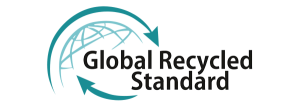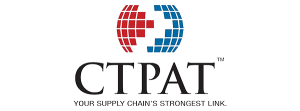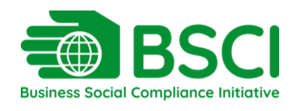
Global Recycled Standard (GRS)
The Global Recycled Standard (GRS) is a comprehensive, voluntary certification that sets requirements for third-party certification of recycled content, chain of custody, social and environmental practices, and chemical restrictions. Developed by Textile Exchange, the GRS ensures the integrity of recycled materials used in various products, promoting a more sustainable and circular economy.
Key Features:
Recycled Content Verification:
The GRS certifies the presence and percentage of recycled content in a product, providing transparency about the sourcing and utilization of recycled materials.
Chain of Custody:
It establishes a robust chain of custody system, allowing manufacturers and consumers to trace the journey of recycled materials from collection to the final product.
Environmental and Social Practices:
The standard incorporates criteria for environmental and social practices throughout the production process, promoting responsible manufacturing and fair labor practices.
Chemical Restrictions:
GRS places restrictions on the use of certain chemicals in the manufacturing process, ensuring that recycled products meet specific environmental and health standards.
In conclusion, the Global Recycled Standard plays a pivotal role in advancing sustainable practices in manufacturing, ensuring that businesses prioritize recycled content, responsible sourcing, and ethical production methods.

Customs-Trade Partnership Against Terrorism (CTPAT)
The Customs-Trade Partnership Against Terrorism (CTPAT) is a voluntary program led by U.S. Customs and Border Protection (CBP). It’s designed to improve the security of private companies’ supply chains with respect to terrorism. Here are some key points about CTPAT.
Background:
CTPAT was launched in 2001 following the 9/11 attacks as a part of the U.S. government’s efforts to enhance the security of the international supply chain.
Objective:
The primary goal of CTPAT is to collaborate with the trade community to implement best practices that strengthen overall supply chain security.
Participants:
Companies involved in the importation of goods into the United States, including manufacturers, importers, customs brokers, and carriers, are eligible to participate in CTPAT.
Benefits:
CTPAT-certified companies receive various benefits, including reduced inspections and expedited processing of their shipments at the border.
Security Criteria:
To become CTPAT-certified, companies must meet certain security criteria. These criteria cover areas such as physical security, access controls, personnel security, procedural security, and information technology security.

Supplier Ethical Data Exchange (SEDEX)
SEDEX, which stands for Supplier Ethical Data Exchange, is a not-for-profit membership organization dedicated to driving improvements in responsible and ethical business practices in global supply chains. SEDEX provides a platform for companies to share and manage information related to labor standards, health and safety, the environment, and business ethics in their supply chains. Here are some key points about SEDEX.
Purpose:
SEDEX aims to promote ethical and responsible business practices by providing a platform for companies to share information on labor practices, health and safety, the environment, and other ethical considerations within their supply chains.
Membership:
Companies join SEDEX as members to access its platform and services. SEDEX is not a certifying body but rather a collaborative platform for sharing and managing ethical and responsible sourcing data.
Database:
SEDEX operates a global database that allows members to share information about their supply chains, including audits, certifications, and other relevant data.
Supplier Audits:
SEDEX supports the sharing of supplier audit reports, which can include assessments related to social and ethical compliance, labor conditions, environmental impact, and more.

Business Social Compliance Initiative
BSCI, or the Business Social Compliance Initiative, is an initiative of the Foreign Trade Association (FTA) that focuses on improving social standards in global supply chains. BSCI provides a framework and tools to help companies monitor and improve social performance in their supply chains. Here are some key points about BSCI:
Objective:
BSCI aims to improve social conditions in the global supply chain by promoting compliance with social standards and ethical business practices.
Membership:
Companies can join BSCI as members to access its tools and resources for social compliance. BSCI membership is open to retailers, importers, and brands that want to address social issues in their supply chains.
Code of Conduct:
BSCI has a Code of Conduct that outlines key principles and requirements related to labor standards, working conditions, and human rights. The code covers areas such as freedom of association, fair remuneration, and occupational health and safety.
Audits and Monitoring:
BSCI encourages members to conduct social audits in their supply chains to assess compliance with the BSCI Code of Conduct. The initiative provides tools for monitoring and reporting on social performance.

Oeko-Tex Organization
OEKO-TEX is an independent testing and certification system for textiles and textile-related products, aiming to ensure that these products meet strict standards for human and ecological safety. Here are some key points about OEKO-TEX:
Standard and Certification:
The OEKO-TEX Standard is a globally recognized certification system for textiles. It consists of various product labels and certifications, each with specific criteria and requirements.
Product Labels:
OEKO-TEX offers different product labels based on the testing and certification criteria. Some of the well-known labels include:
Standard 100 by OEKO-TEX: This label certifies that a textile product has been tested for harmful substances and is therefore safe for human health.
Made in Green by OEKO-TEX: This label indicates that a product is not only tested for harmful substances but is also produced in environmentally friendly and socially responsible facilities.
Step by OEKO-TEX:
This certification focuses on sustainable textile production, considering environmental performance, social responsibility, and occupational health and safety.
Testing Criteria:
The testing criteria for OEKO-TEX certifications cover a wide range of substances, including banned and regulated chemicals, colorants, pesticides, heavy metals, and more. The goal is to ensure that textiles do not pose any risk to human health or the environment.

